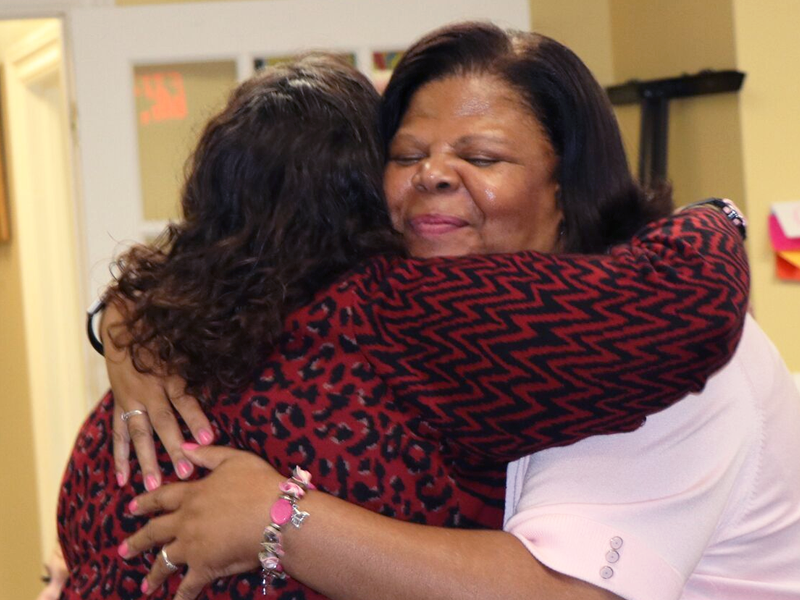
Joyce Mayberry Leads In New Role As Vice President of Family Formation
Joyce Mayberry Leads In New Role As Vice President of Family Formation

Joyce Mayberry will be moving into a new role as the Vice President of Family Formation. In this position, Joyce will continue to develop new ways to strengthen families in the communities we serve through our many partners.
This move in position reinforces three primary pillars of the Georgia Center for Opportunity (GCO) team – opportunity for high-quality education, meaningful work, and healthy families. Family formation is an important foundation for ensuring we can maximize the chances of someone charting a path out of poverty.
Joyce has served the GCO community for the past two decades, becoming a well-respected leader on family relationship resources. . Organizationally, she brings a powerful passion to better assist and train individuals on healthy relationships.
“I am excited about my new role as Vice President of Family Formation,” stated Joyce about this new alignment.” There is power in numbers and together we can help enhance and empower the well-being of family members.”
Through collaboration with recent new partners, Joyce will work to streamline our family education efforts and continue to champion our invaluable partners.
This change will help GCO successfully set up pathways for those stuck in the cycles of poverty. It is through this renewed vision that we hope to bring new opportunities and break down barriers in 2020.


 Recently I took the family on a vacation. We slept in a hotel room with beds mere feet from each other, shared street-vendor meals, crammed into a small vehicle and drove hours together, and walked miles side-by-side for seven straight days.
Recently I took the family on a vacation. We slept in a hotel room with beds mere feet from each other, shared street-vendor meals, crammed into a small vehicle and drove hours together, and walked miles side-by-side for seven straight days.



